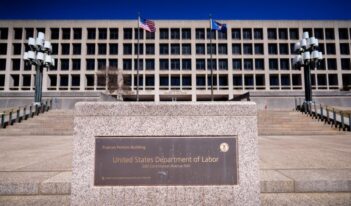
New Department of Education rule places excessive restrictions on federal funding for higher education.
Doomsayers have referred to growing debt from college loans as the second coming of the subprime crisis. They warn that an entire industry is on the verge of collapse, threatening to dash the dreams of over 3 million students on the rocky edges of debt.
In response to this looming crisis, the U.S. Department of Education recently published its “gainful employment” rule to try to ensure that college students are not debt-ridden. The Department’s publication of this rule marks the ostensible end of a lengthy process that included more than 90,000 public comments, a controversial Government Accountability Office report, and a litany of unintended consequences that have put the stocks of for-profit educational institutions through a regulatory rollercoaster ride. The economic consequences of this new rule would rise into the hundreds of millions of dollars according to estimates in the Department’s Federal Register notice.
The Department states that schools must meet one of three metrics to receive federal funding: at least 35 percent of former students are repaying their loans; the annual loan payment of a typical graduate does not exceed 30 percent of that graduate’s discretionary income; or the annual loan payment of a typical graduate does not exceed 12 percent of annual earnings.
The Department’s final rule was less harsh than the draft version: the final version postponed sanctions originally scheduled for 2012 until 2015, and it imposed a three-strikes-out-of-four-years policy instead of an immediate disqualification policy. As a result of the change, stocks for for-profit colleges surged, with Strayer University gaining 15.4 percent and Corinthian Colleges edging up 29 percent since the publication of the final rule.
Although the final gainful employment rule is less harsh than the proposed version, it still will have profound implications for schools and the very students the regulation is designed to protect.
The Department of Education estimates that three percent of all programs are expected to fail to meet the Department’s metrics at some point, with two percent losing eligibility. Institutions with successful programs will have to take on the cost of educating students from failing programs, at the tune of $133 to $178 million per year.
The rule also imposes more than 261,000 annual paperwork burden hours, estimated to cost over $5 million annually, for postsecondary institutions.
The Department predicts the for-profit education sector will lose approximately $338 million in annual revenue due to the rule – and this estimate does not even anticipate resulting employment declines. The U.S. Chamber of Commerce has predicted that the rule would result in 90,000-100,000 lost jobs.
Senator Tom Harkin (D-IA), Chairman of the Health, Education, Labor, and Pensions (HELP) Committee, has supported the Department’s attempt to rein in career colleges by commissioning a series of hearings on the business practices of proprietary schools. During this process, Senators Richard Burr (R-NC) and Tom Coburn (R-OK) sent a letter to the Department’s Inspector General, Kathleen Tighe, asking her to investigate whether Wall Street short sellers improperly influenced the Department’s rule. Congressional pressure also reportedly led to a U.S. Government Accountability Office report on the rule that was riddled with errors.
These allegations resulted in an investigation by Inspector General Tighe and caused every Republican member of the HELP Committee to boycott its latest hearing on the gainful employment rule.
Nearly 300 members of Congress, including 58 Democrats, voted in February, 2011, not to fund the implementation of the “gainful employment” rule. Members of Congress have stated that it is within Congress’s power, and not the Department’s, to define “gainful employment.” The Department’s interpretation has exceeded its statutory authority and is undermining the original intent of the statutes giving it authority, which is to promote educational attainment.
Members have responded: Senator Jim DeMint (R-SC) added an amendment to the Economic Development Revitalization Act that, if passed, would rescind the gainful employment rule.
Rather than focusing on strict regulatory sanctions, the Department of Education should stay in its own lane. Its new rule keeps students, especially first-generation, minority, low-income students, from gaining access to higher education. That will only hurt their prospects for future employment.





